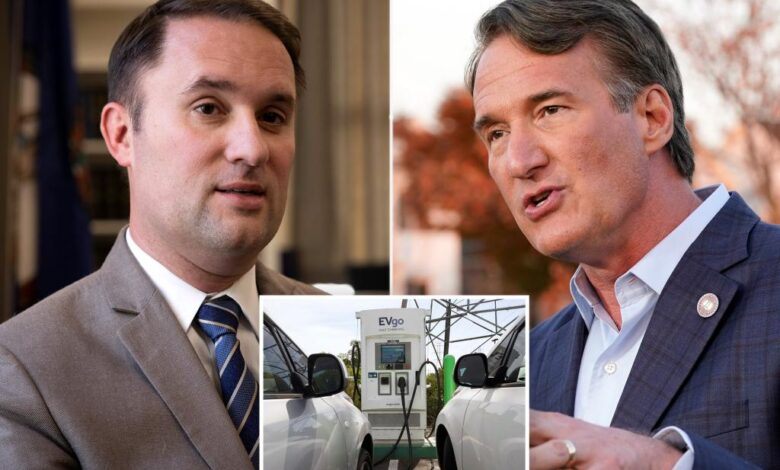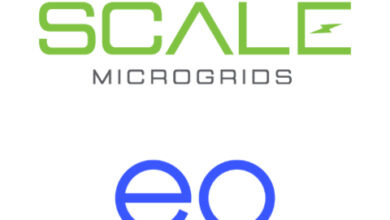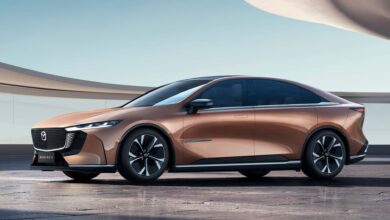Virginia’s Youngkin, Miyares strike back at California electric vehicle mandate: ‘Declaring independence’

As of next year, Virginia will no longer follow California’s electric vehicle mandates, Gov. Glenn Youngkin’s office announced Wednesday.
“Once again, Virginia is declaring independence – this time from a misguided electric vehicle mandate imposed by unelected leaders nearly 3,000 miles away from the Commonwealth,” Youngkin said in a statement.
Though Youngkin has fought green energy mandates established by the prior administration – most notably, the Regional Greenhouse Gas Initiative – the announcement comes as a surprise, as it was believed that this decision was in the hands of the General Assembly.
Youngkin encouraged state lawmakers at the start of this year’s legislative session to repeal the 2021 law tying Virginia’s vehicle emissions policies to California’s, but the bill never made it out of committee due to the Assembly’s Democratic majority.
But commonwealth Attorney General Jason Miyares has issued what is sure to be a highly contested official opinion “confirm[ing] that Virginia is not required to comply with expansive new mandates adopted by the unelected California Air Resources Board (CARB) set to take effect January 1, 2025.”
The governor held a press conference on Wednesday afternoon, proudly declaring Virginia’s emancipation from California policy.
“I have the privilege of announcing once and for all the California electric vehicle mandate in Virginia. The idea that governments should be telling Virginians what kind of car they must drive is just simply wrong,” Youngkin said.
Federal law limits state autonomy regarding vehicle emissions: States must adhere to federal vehicle emissions standards, or they can choose to adopt California’s more stringent standards.
In 2021, under a Democratic governor and a Democratic majority in the General Assembly, Virginia passed several bills that dramatically changed the state’s energy and environmental landscape. One was the Virginia Clean Economy Act, which committed to transitioning Virginia’s electric grid entirely to green energy by 2050, and another hitched Virginia’s electric vehicle policies to California’s.
California requires 100% of new car sales to be zero-emission vehicles by 2035 and can fine automakers that fail to comply.
Republicans have bucked against the mandates since they came to Virginia but have been unable to reverse them through the legislative process. But Miyares seems confident that he has found a legal loophole.
In 2012, California adopted its Advanced Clean Car Program I, regulating vehicle emissions standards from 2015 to 2025. In 2022, California adopted the Advanced Clean Cars II.
“Virginia’s air pollution control board has never approved, never adopted these ACCII (Advanced Clean Car Program II) regulations and because there was an explicit sunset provision placed on ACCI, it expires on December 31 of this year,” Miyares said.
Miyares also pointed to “permissive” language in the Virginia law referring to the first program, ACCI, which allowed the commonwealth to abandon California’s clean cars policies in 2025.
“I can reach no other conclusion as the attorney general of Virginia that the provisions tying us to California ACCII are no longer operable and yes, Virginians, yet again, have consumer freedom,” Miyares said.
Republicans are voicing their support for the move, grateful the commonwealth’s environmental policies will no longer be tied to California’s.
“Virginians, not unelected bureaucrats in California, should be able to choose the cars that fit their families needs,” Republican Senate Majority Leader Michael McDougle posted on X.
“Outstanding!! This had to be one of the most ridiculous policy decisions forced on Virginians when the Democrats took complete control of government in 2020/2021,” Del. Nick Freitas, R-Culpeper, posted on X.
Virginia Democrats have yet to issue an official response to the news.



